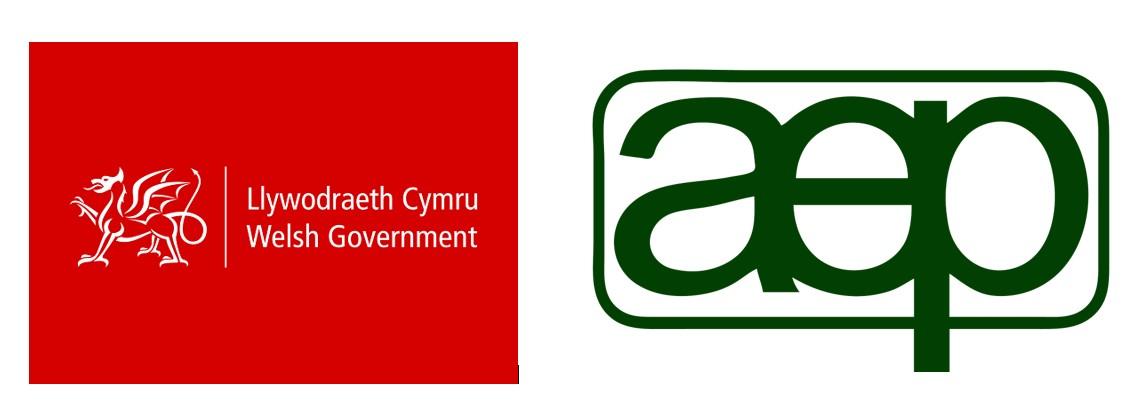Editorial Board Election 2025 - Nominations Received
Following the close of nominations on Thursday 26th June 2025, we are pleased to share an update on the election process for positions on the Editorial Board for Educational Psychology in Practice journal.
We received one nomination for the role of Review Editor: Frank Pearson. As there were no other candidates, this position has been elected unopposed. You can read Frank's personal statement by selecting his name in the list below.
For the two Ordinary Member positions, five nominations were submitted. In accordance with AEP constitution, these posts will now be decided by a ballot of eligible members. The election will be conducted online and overseen by an independent scrutineer to ensure transparency and fairness.
You can view the full list of nominees below. Each nominee has provided a personal statement and has been supported by two members—this information can be accessed via the dropdown for each candidate.
For those interested, we’ve also included some information about the role of the Editorial Board.
Melanie Ruth Adkins
Statement: I work as a Principal EP for a LA service, as well as private practice, and this means I am ideally placed, in terms of current concerns in terms of research, and applied practice, across the discipline. In addition, I have previously been Academic Tutor on the EP Doctorate and therefore have direct experience of the nature of doctoral training, as well as research. I continue to work currently as an associate to several of the training courses.
As Academic Tutor, thesis marker, and Pearson examiner, I am used to working to strict deadlines. Consideration of work in a prompt, consistent, and professional manner is part of my multiple roles. I have previously been part of BPS and OU Psychology committees, and I am currently part of the Eastern Region EP Committee. This means that I am aware of the commitments, timeframes, and joint goals that working as part of a committee entails.
Now in my 20th year, I am wanting to contribute to furthering the reach of our profession in terms of our own evidence-based practice for those with whom we work, but also the impact our discipline can make beyond our own work. Our EPiT journal is key in this process. It's almost as if it is a our shop window or book blurb and has the capacity to support us in taking our profession in expanded and new directions. I am keen to play an active role at such a potential time of change for EP practice.
Supporter: Sasha Hall
Supporter: Paula Pashley

Timothy Cox
Statement: I am excited about the opportunity to apply to be an ordinary member of the EPIP editorial board as I am passionate about new research and dissemination of ideas and evidence based practice.
I believe that Educational Psychology is an exciting and innovative profession with the capacity to inspire hope for change and pioneer new pathways of evidence based practice to support this for the young people, families and communities that we serve. Dissemination of these ideas is crucial in fostering a forthright sense of identity and value within our profession. In my view, EPIP is held in high esteem within the EP community and is well placed to lead in new ways of extending the impact of research within our profession and beyond.
In the past 5 years there has been a significant growth in alternative approaches to disseminating evidence based approaches in Educational Psychology such as blogging, podcasting and webinars. These practices support and enrich the exploration of evidence based practice and attract new audiences to the practice and profession of Educational Psychology. I believe that my knowledge and experience of innovating and participating in these practices will help to enrich EPIP's editorial board in enhancing it's esteemed reputation and enrichment of the EP community.
Furthermore my experience in supporting trainee EPs to develop doctoral level research at Newcastle University and supervision in practice has supported my understanding of the role of research in the work of EPs. This opportunity provides an exciting new development in my career.
Supporter: Richard Gregory
Supporter: Emma Miller

Richard Gregory
Statement: I value the role EPIP has in the dissemination of high-quality, evidence-based practice. Having relatively recently completed doctoral training, I understand the research process and the vital role dissemination has in ensuring EPs, and other allied professionals, have access to current research. I am also keenly aware of the innovative and impactful research many trainees produce, and I am passionate about ensuring they have a journal which offers a platform to disseminate this invaluable research. I feel EPIP can support TEPs and EPs to translate their research into practice by providing a supportive channel for dissemination, ensuring the professional and social impact of their research is clearly articulated to interested audiences.
I have previously been a member of the Division of Educational and Child Psychology's committee and gained valuable strategic insights into EP practice across the UK. I hope to support EPIP to continue to reflect this practice through offering a platform for innovation and creativity, two qualities important to me. In supporting innovation, I am currently collaborating with psychologists from across the BPS to write the BPS' first guidelines on the use of artificial intelligence in psychological research. This has enhanced my research and editing skills, through challenging me to understand a new and emerging technology and disseminating clear guidance relating to it. I would be honoured to have the opportunity to join the editorial board and to support EPIP to continue its valuable work for the profession. Thank you for your consideration.
Supporter: Tim Cox
Supporter: Kevin Woods

Rachael Hunt
Statement: I am standing for election to the Educational Psychology in Practice Editorial Board.
As an Educational Psychologist within a local authority setting and as a professional tutor on the Educational Psychology training programme at Cardiff University, I keep up to date with recent research and developments within the field of educational psychology and have a passion for learning. I am a supervisor and examiner for doctoral level research and believe these roles enable me to provide support, guidance and space for professional development, whilst maintaining a rigorous standard for the work produced.
Having recently acted as a reviewer for a special education of a journal, I have an understanding of the level of critique, and support, that is required as part of the feedback process for reviewing submissions and I am keen to develop my skills in this regard further. I also have an awareness of the responsibility of a reviewer to provide detailed and constructive feedback on submissions within the desired time frame.
Additionally, I am passionate about the responsibility of a researcher to disseminate their work in order facilitate change and development within our profession, especially in light of the rapidly evolving world we are working within. As part of this, I am eager to be a part of a mechanism that supports the sharing of psychological theory, research and practice to a wide range of applied psychologists, and encourages contributions from both qualified and trainee educational psychologists, especially those who may be new to publishing.
Supporter: Rosanna Stenner
Supporter: Anna Lipscomb

James Redburn
Statement: I am a recently qualified EP working for Reading local authority. Since qualifying 3 years ago, I was a member of the AEP National Executive Committee, and through this I joined the Educational Psychology In Practice (EPIP) journal board for a year. I have plenty of experience attending editorial board meetings and peer reviewing papers for publication. In addition, I have a keen interest in publishing my own research and have published three papers based on my thesis research in international journals including The Journal of Clinical Psychology.
I would like to join the EPIP board to contribute to the vital process of building the research base for the EP profession, helping to disseminate important research and practice implications across the workforce and beyond. I feel strongly that this is an important part of our role as scientist-practitioners, as we should have access to high-quality research findings to build our psychological understanding and help us give research-informed information to the wider educational workforce. EPIP does a great job of publishing articles that are both methodologically sound and of practical relevance, and I would like to contribute to this philosophy.
Supporter: Jack Hammond
Supporter: Ellie Hayes

Frank Pearson (elected as Review Editor)
Statement: I am an experienced Review Editor, having held a similar position for the BPS/DECP-'Debate' publication for the last ten years. In addition, I been a member of the Editorial Board of 'Debate' and EPiP for a similar period of time.
I am an experienced EP, having been employed by a number of LA's, at various levels of seniority. Currently, I am employed by Aston University, at the Institute of Health and Neurodevelopment. I have a PhD in Cognitive Psychology and Meta-cognition.
Supporter: Richard Melling
Supporter: Brian Apter

About the Editorial Board
The role of the Editorial Board is to manage the production and development of the Association’s journal Educational Psychology in Practice and to assist the Editor by acting as anonymous referees in respect of submitted papers. Board meetings are held three times a year; some meetings may be held virtually, but there will be up to two ‘in-person’ meeting per year (typically in London). Travel and subsistence expenses for attendance at Board meetings will be reimbursed on the terms set out in the Members’ Handbook.
As part of their duties Ordinary Members of the Editorial Board are expected to read and offer a written critique of articles submitted for publication.
The Review Editor selects appropriate books and software for review, and assists authors in submitting critical reviews for publication. The Review Editor is also expected to referee some substantive articles, although fewer than Ordinary Members. A moderation exercise is carried out at most Editorial Board meetings. Final decisions concerning publication rest with the Editor, but a high premium is placed on collaborative working.
The Editorial Board comprises:
- The Editor
- The Review Editor
- Six Ordinary Members
- Representatives of the National Executive Committee (NEC)

Election Timetable
26th June 2025 - Nomination process closes
w/b 30th June 2025 - Ballot commences
25th July 2025 - Closing date of ballot
28th July 2025 - Results declared by the AEP
Ballot information
All eligible members should receive their ballot paper to the email address we hold on our systems - you can check and change your address by accessing the member hub or by emailing enquiries@aep.org.uk.
If you have not received an email, please contact alex.davies@civica.co.uk to request a replacement.
Please ensure all votes are submitted ahead of the deadline of 12 noon on Friday 25 July 2025.
Latest News & Activity


